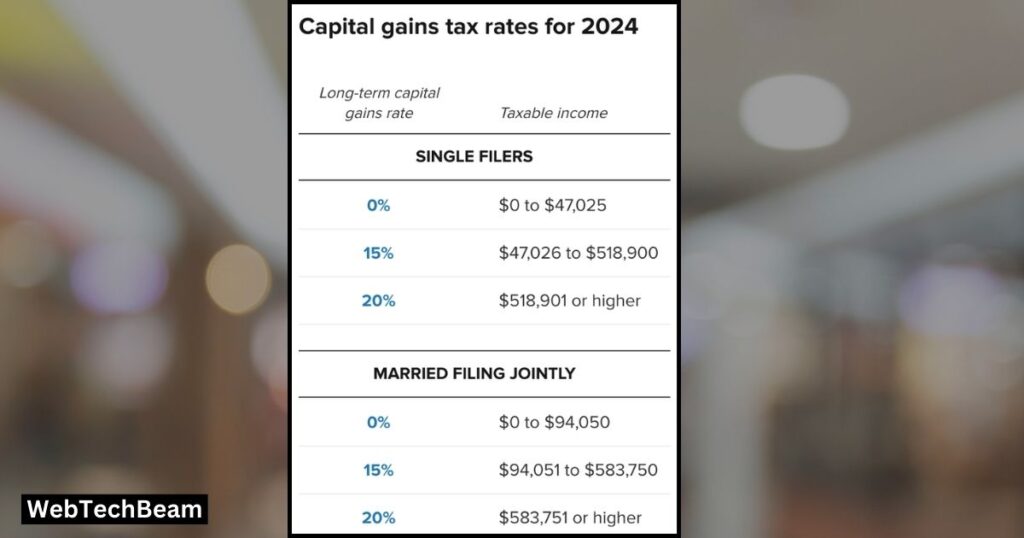Is Sending Crypto to Another Wallet Taxable?

Cryptocurrency is a type of digital money that exists online, with Bitcoin being one of the most well-known examples. People buy and sell cryptocurrencies just like traditional currencies, and many see them as valuable assets that can grow in worth over time.
However, knowing that using or transferring cryptocurrency may have tax consequences is essential.
Understanding these tax implications is essential because it helps avoid unexpected costs and ensures compliance with the law when managing your digital assets.
What are the key aspects of Cryptocurrency Transfers?
Transferring Crypto Between Wallets
Transferring cryptocurrency between wallets means moving your digital money from one place to another. Just like you might send money from one bank account to another, you can send cryptocurrency from your wallet to someone else’s or another wallet you own.
Each wallet has a unique address, similar to an email address, which allows you to send and receive cryptocurrencies securely.
Types of Wallets
There are several types of wallets you can use to store your cryptocurrencies.
- Hot Wallets: These wallets are connected to the internet, making it easy to access and use your crypto. They are convenient for everyday transactions but may need to be more secure because they can be vulnerable to hackers.
- Cold Wallets: These wallets are not connected to the internet, which makes them very secure. They are ideal for storing large amounts of cryptocurrency that you don’t plan to use often. Examples include hardware wallets and paper wallets.
- Exchanges: These are platforms where you can buy, sell, or trade cryptocurrencies. While exchanges can hold your crypto, transferring your funds to a private wallet is generally safer after trading.
Purpose of Transfers
People transfer cryptocurrencies for different reasons.
- Personal Transfers: You might send crypto to friends or family as a gift or for splitting costs.
- Trading: Many people transfer their cryptocurrencies to different wallets to buy or sell them on various exchanges, hoping to make a profit.
- Gifting: Transferring crypto can also be a unique way to give a gift, just like giving cash or a gift card.
What are Capital Gains Taxes in Crypto?

You may need to pay capital gains tax on any profit when you sell or exchange cryptocurrency. Capital gains differ between what you paid for the crypto (the cost basis) and what you received when you sold or traded it. The profit is considered a capital gain if you sell your crypto for more than you bought. If you sell it for less, you may have a capital loss, which can be used to offset other gains on your taxes.
It’s important to keep track of all your transactions, including the dates, amounts, and values at the time of sale. This information helps you accurately report your gains or losses when filing your taxes. Tax laws vary by country, so check local regulations or consult with a tax professional to ensure you’re compliant.
Taxable Events Explained
Definition of a Taxable Event
A taxable event is any transaction or activity that can trigger tax obligations. In cryptocurrency, a taxable event occurs when you sell, exchange, or use your digital assets in a way that results in a profit or a loss.
For example, if you buy Bitcoin for $1,000 and later sell it for $1,500, the sale is a taxable event because you made a profit of $500.
On the other hand, if you sell it for $800, you would have a loss, which can also affect your taxes.
IRS Guidelines on Cryptocurrency Taxation
The IRS, or Internal Revenue Service, is the agency that collects taxes in the United States and has specific guidelines for how cryptocurrencies are taxed. According to these guidelines:
- Recognition of Gains or Losses: When you engage in a taxable event, you need to recognize the gains or losses. You must report how much money you made or lost when selling or exchanging cryptocurrency. This is important for correctly calculating your tax liability.
- Importance of Fair Market Value: The fair market value is the price your cryptocurrency would sell for on the open market. When you sell, trade, or otherwise use your cryptocurrency, you must determine its fair market value at that time. This value helps you determine your profit or loss, which will be used for reporting to the IRS.
Understanding these terms and rules can help you manage cryptocurrency activities and meet your tax responsibilities. Always keep accurate records of your transactions to make the process easier.
When Sending Crypto is Taxable?

Selecting a Wallet Scenario
It can become taxable in certain situations when you send cryptocurrency, whether from an exchange to your personal wallet or between your own wallets. For example, if you buy Bitcoin in exchange and then move it to your individual wallet, the initial purchase is not taxable.
However, if you later sell or exchange that Bitcoin for something else, like cash or another cryptocurrency, you could owe taxes on any profit you made.
Cryptocurrency as Compensation or Payment
Sometimes, people receive cryptocurrency as a form of payment for goods or services. This is taxable income if you work and get paid in Bitcoin instead of cash. You would need to report the value of that Bitcoin on the day you received it as income, just like you would with a regular paycheck.
Gifting Crypto Above IRS Exemption Limits
If you decide to give cryptocurrency as a gift, it could also be taxable. In the U.S., the IRS allows you to give gifts up to a certain amount each year without any tax consequences, known as the annual gift tax exclusion.
As of 2023, this limit is $17,000. If you gift crypto worth more than this amount to someone, you may need to report it and face taxes on the excess value.
Example:
Suppose you buy Bitcoin for $1,000 and later give it to a friend when it’s worth $20,000. Since the gift exceeds the annual limit, you would need to report this on your taxes, and you might also owe taxes on the profit made.
When Sending Crypto is Not Taxable?

There are times when sending cryptocurrency does not trigger any tax obligations. Here are some everyday situations:
Transfers Between Wallets Owned by the Same Individual
When you move cryptocurrency from one wallet to another wallet that you own, it is not considered a taxable event. This is because you are transferring your assets, not selling or exchanging them.
Sending Crypto as a Gift Below the Exemption Threshold
You do not have to pay taxes if you give cryptocurrency as a gift and its value is below the annual gift tax exclusion limit. For instance, if you give someone a Bitcoin worth $10,000 as a gift, and the yearly limit is $17,000, that gift is tax-free.
Intra-Wallet Transfers Not Involving Sold Assets
If you transfer crypto within wallets without selling it, this does not count as a taxable event. You are simply moving your assets around without turning them into cash or another cryptocurrency.
Example:
This action is not taxable if you have $1,000 worth of Ethereum in Wallet A and send it to Wallet B. Later, if you decide to sell that Ethereum for $1,500, you only need to report a gain for tax purposes.
You can also explore What is a Certified Crypto Trader?
Remember to keep good records.

Keeping accurate records of your cryptocurrency transactions is very important. It helps you track your gains and losses, making reporting your taxes easier. If you ever face questions from the IRS or another tax agency, having detailed records can help you prove your case.
Good record-keeping enables you to manage your investments and understand how your cryptocurrency performs over time.
What Records to Keep?
It would help if you kept several key pieces of information about your transactions to stay organized:
- Dates: Note when you bought, sold, or transferred your cryptocurrency.
- Amounts: Record how much cryptocurrency you purchased or sold and its value in cash at that time.
- Wallet Addresses: Write down the addresses of the wallets involved in each transaction. This helps you keep track of where your crypto is stored.
By keeping these records, you’ll be well-prepared for tax season and can avoid potential issues later on.
Conclusion
Understanding cryptocurrency taxation is crucial for anyone buying, selling, or holding digital currencies. Remember that certain activities like selling, trading, and receiving crypto as payment can lead to taxable events. At the same time, simple transfers between your wallets often do not.
Keeping detailed records of your transactions will make tax time much easier. If your situation feels complicated or uncertain, it’s a good idea to consult a tax professional who can guide you through the specifics and help you stay compliant with IRS regulations.
Staying informed and prepared can save you from unexpected tax obligations!
Common Queries about Crypto Wallet Transfer and Taxes
Are wallet-to-wallet transactions taxable?
No, transferring cryptocurrency between your own wallets is not considered a taxable event. This is simply a movement of your assets without a sale or exchange, so you do not have to report any taxes on that transaction.
Is there a fee for sending crypto to another wallet?
Most blockchain networks charge a transaction fee, usually called “gas,” when sending cryptocurrency between wallets. This fee is paid to the network to process and validate your transaction. It is important to consider these fees when making any transfers.
Is transferring crypto to another exchange a taxable event?
Transferring cryptocurrency from one exchange to another is generally not taxable; however, the tax implications can change if you sell the crypto or convert it into another asset during or after the transfer. Simply moving your crypto between exchanges does not trigger tax responsibilities.
Is it taxable to trade one crypto for another?
Yes, trading one cryptocurrency for another is considered a taxable event. The IRS treats this as a sale, meaning you need to report any gains or losses from the trade based on the fair market value of the cryptocurrencies at the time of the exchange.
Do I have to pay taxes on cryptocurrency earned from mining?
Yes, cryptocurrency earned through mining is considered taxable income. You must report its fair market value when you receive it as income.
Are there different tax implications for long-term vs. short-term cryptocurrency holdings?
Long-term holdings (assets held for over a year) are usually taxed at a lower capital gains tax rate. In contrast, short-term holdings (assets held for one year or less) are taxed as ordinary income, which can be at a higher rate. Knowing the duration of your holdings can significantly impact your tax obligations.
Do Crypto Wallets Report to the IRS?
No, crypto wallets do not report your transactions to the IRS. However, you are responsible for keeping track of your transactions and reporting them on your taxes. Understanding what you earn and spend is important, as the IRS expects you to report your cryptocurrency income and any gains from selling or trading.





